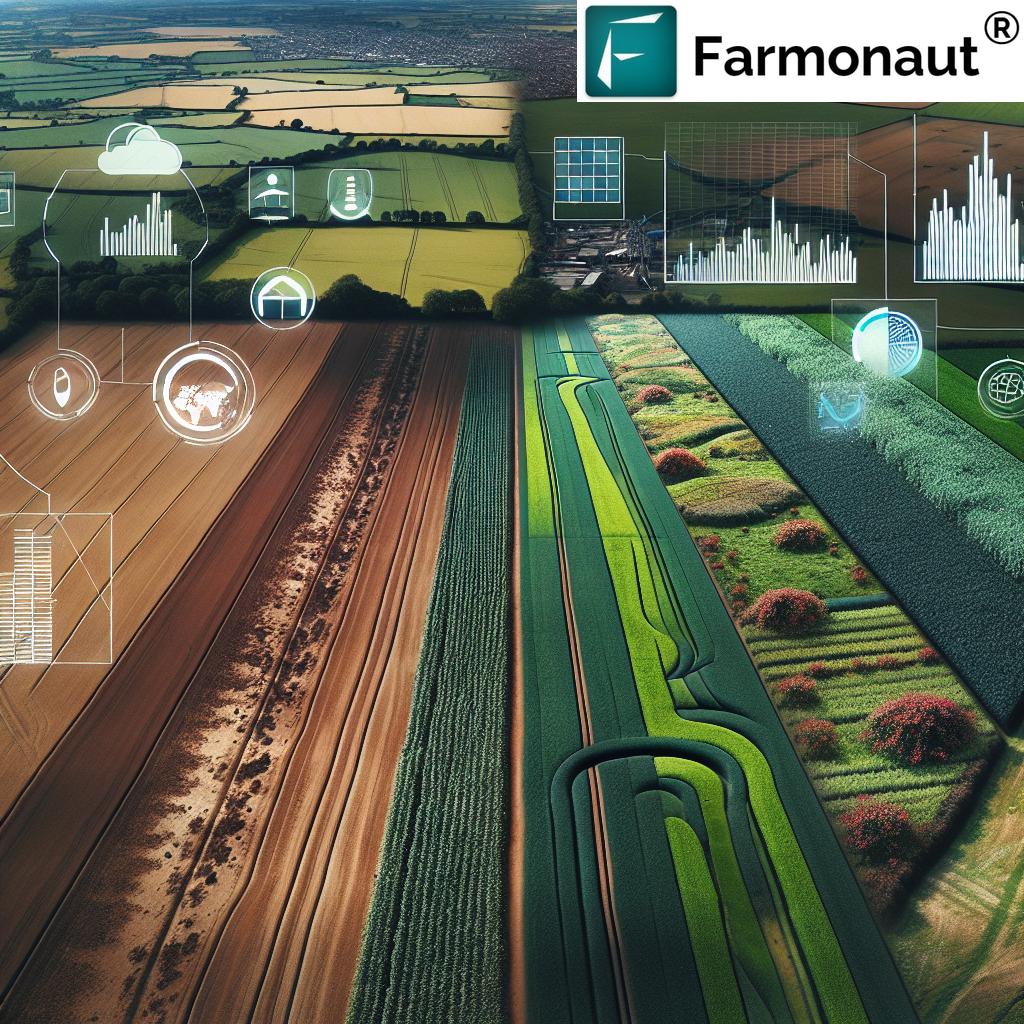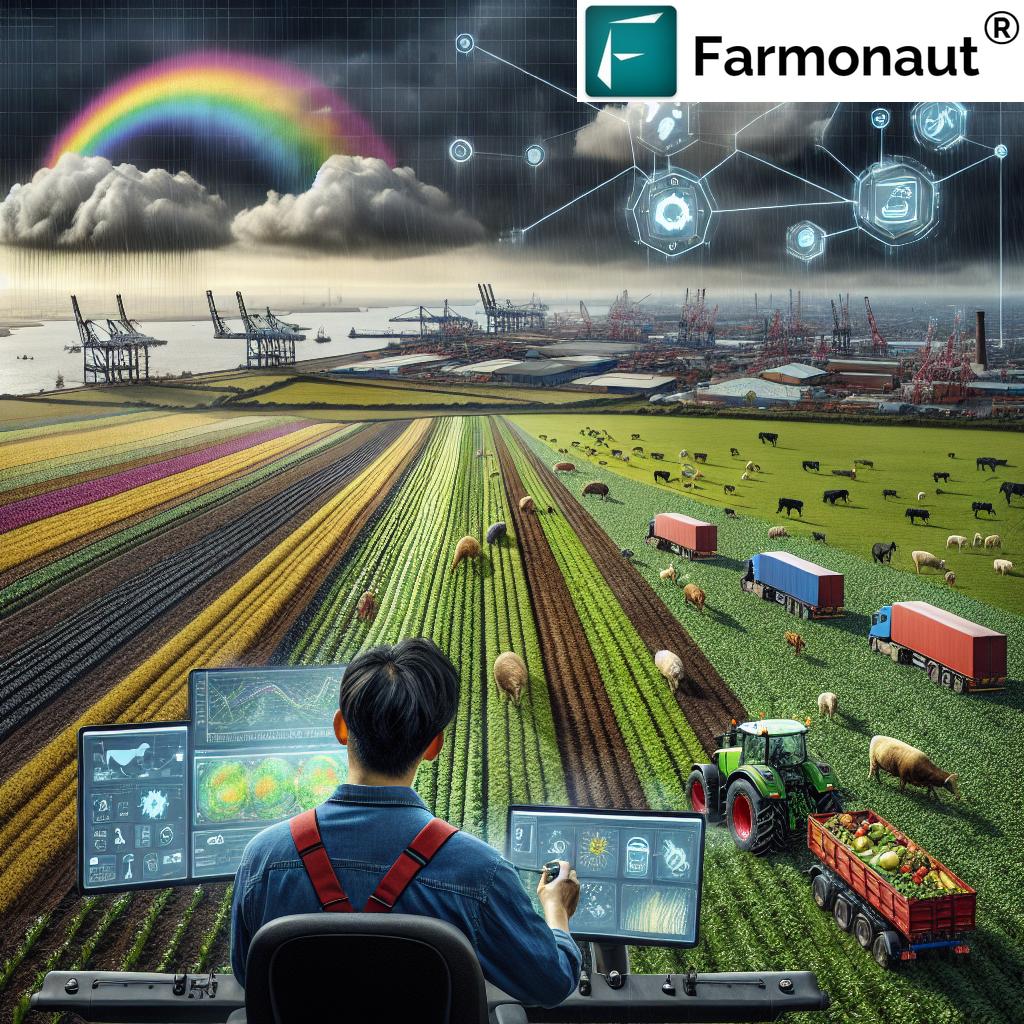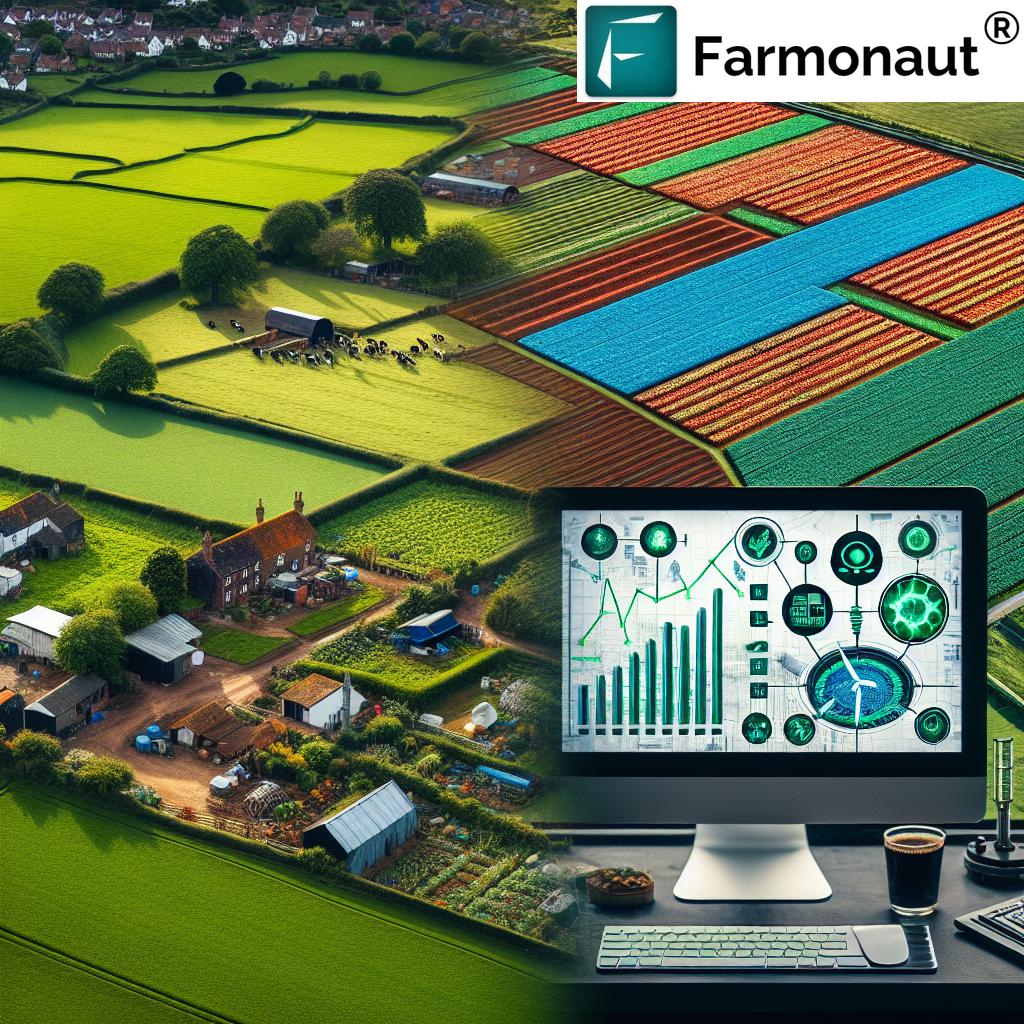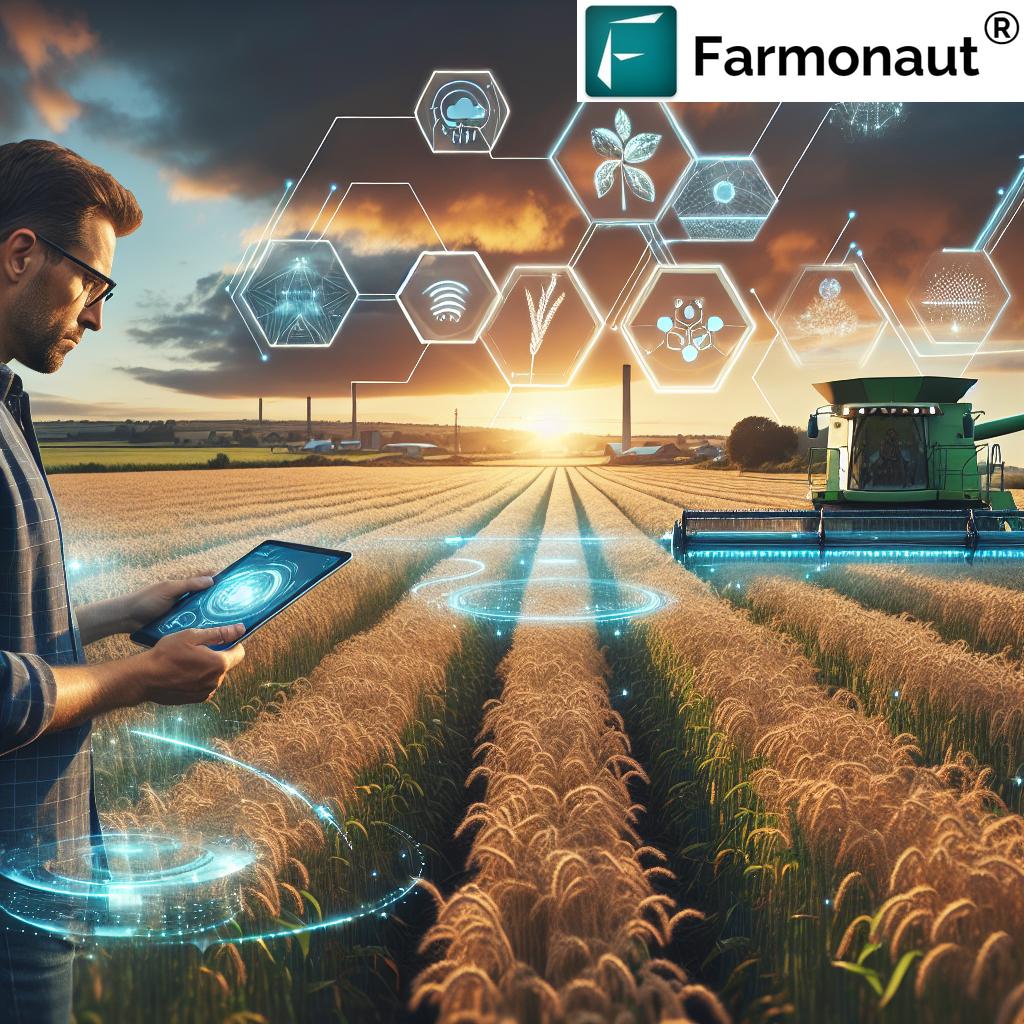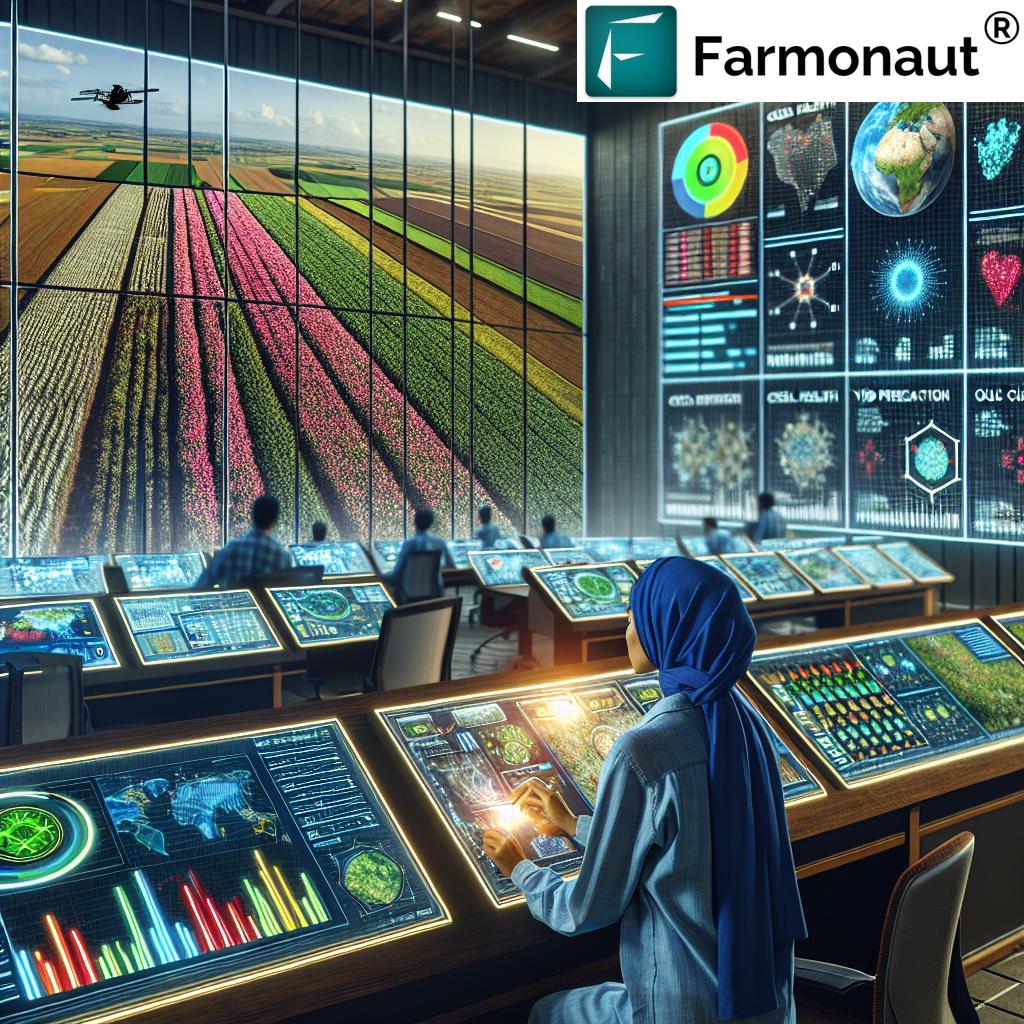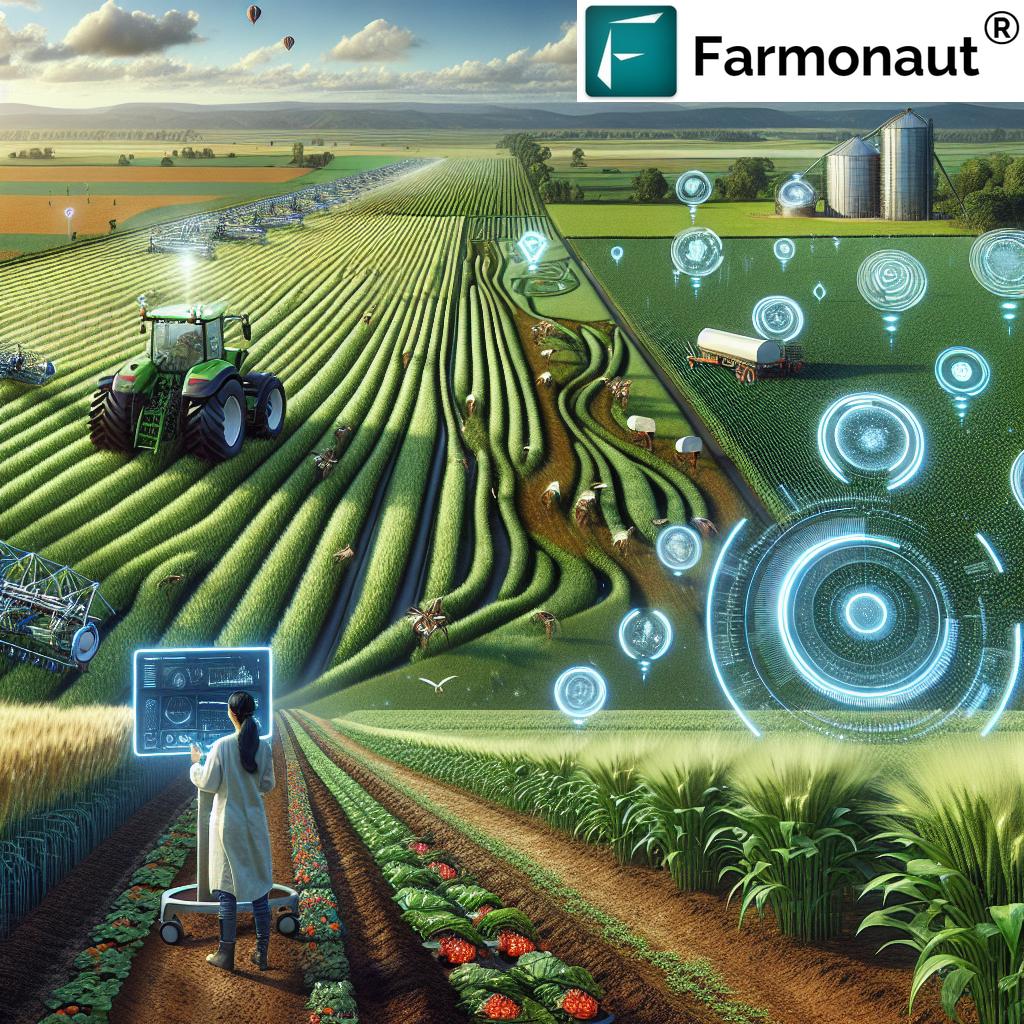UK Food Security Trends 2024: Navigating Challenges in Production, Supply, and Consumer Resilience
“Despite increased global food production, the UK Food Security Report 2024 reveals a rise in undernourishment worldwide.”
In an ever-changing global landscape, the UK’s food security remains a critical concern for policymakers, industry leaders, and consumers alike. As we delve into the UK Food Security Report 2024, released by the Department for Environment, Food and Rural Affairs (Defra), we uncover a complex tapestry of challenges and opportunities that shape the nation’s food production, supply chains, and consumer resilience. This comprehensive analysis provides crucial insights into the intricate workings of our food systems, from farm to fork, and highlights the pressing issues that demand our attention.
Global Food Availability: A Paradox of Plenty and Scarcity
The report paints a nuanced picture of global food availability, revealing both encouraging developments and concerning trends. On one hand, we’ve witnessed consistent growth in global food production, demonstrating the resilience of agricultural systems in the face of geopolitical conflicts and climate-related disruptions. However, this growth is juxtaposed against a troubling increase in undernourishment worldwide, highlighting the complex challenges of food distribution and accessibility.
- Global food production continues to rise, showcasing agricultural resilience
- Increasing rates of undernourishment pose a significant global challenge
- Climate change, biodiversity loss, and water scarcity threaten long-term food security
- Sluggish productivity growth complicates efforts to meet future demand
The long-term impacts of climate change loom large over the future of food production. As we face the triple threat of climate change, biodiversity loss, and water scarcity, the capacity of global agriculture to meet future demand is under significant pressure. These environmental challenges are compounded by sluggish productivity growth on a global scale, further complicating efforts to ensure food security for a growing world population.
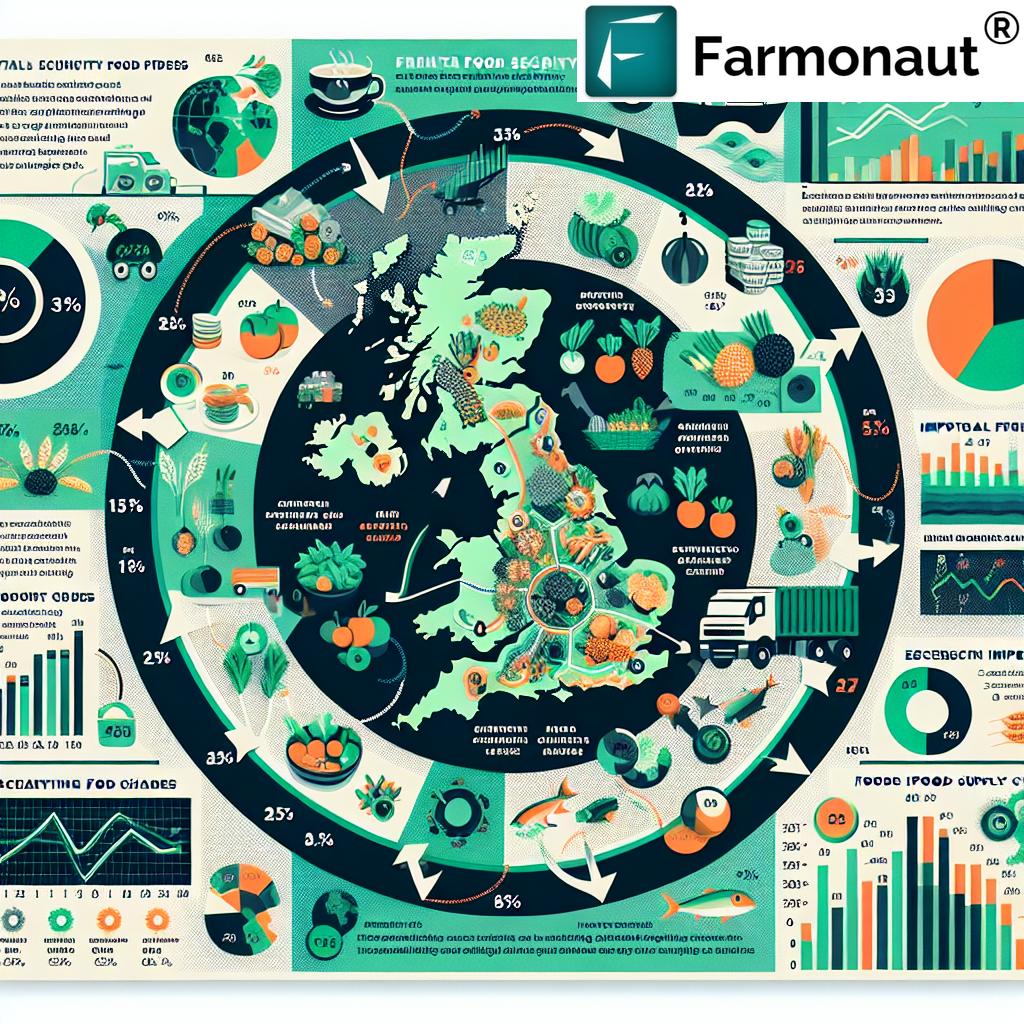
In light of these challenges, innovative solutions are crucial. Farmonaut, a pioneering agricultural technology company, offers advanced satellite-based farm management solutions that can help address some of these global food availability issues. By providing real-time crop health monitoring and AI-based advisory systems, Farmonaut empowers farmers to optimize their yields and make data-driven decisions in the face of environmental uncertainties.
UK Food Supply Sources: Balancing Domestic Production and Imports
Turning our attention to the UK’s food supply sources, we find a delicate balance between domestic production and reliance on imports. While UK food production and trade remain generally stable, domestic agriculture faces significant challenges, particularly from extreme weather events that have become increasingly common in recent years.
- UK domestic agriculture struggles with extreme weather events
- Heavy reliance on imports for fruits, vegetables, and seafood
- Long-term degradation of natural resources threatens sustainable production
- Need for innovative approaches to boost domestic resilience
The UK’s dependency on imports, especially for fruits, vegetables, and seafood, underscores the importance of maintaining robust international trade relationships. However, this reliance also exposes the nation to potential vulnerabilities in global supply chains. The long-term degradation of natural resources within the UK poses an additional threat to sustainable food production, highlighting the urgent need for conservation efforts and sustainable farming practices.
To address these challenges, the UK must invest in innovative agricultural technologies and practices. Farmonaut’s satellite-based crop health monitoring and AI advisory systems can play a crucial role in helping UK farmers adapt to changing weather patterns and optimize their production. By leveraging these advanced tools, farmers can make more informed decisions about crop management, potentially increasing domestic yields and reducing reliance on imports.
Food Supply Chain Resilience: Navigating Global Shocks
The resilience of food supply chains has been put to the test in recent years, with global events causing significant disruptions. The ongoing effects of Russia’s invasion of Ukraine have led to dramatic increases in essential input costs, including energy and fertilizer. These price hikes have rippled through the entire food supply chain, affecting producers, distributors, and consumers alike.
- Dramatic increase in input costs due to geopolitical events
- Labor shortages disrupting supply chains
- Slight improvement in food and drink imports, with EU as main external supplier
- Concerns about supply chain vulnerabilities due to reduced investment
Labor shortages continue to pose a significant challenge to the agri-food sector, disrupting supply chains and impacting productivity. While there has been a slight improvement in food and drink imports to the UK since the drop observed in 2021, the European Union remains the primary external supplier, highlighting the importance of maintaining strong trading relationships with our continental neighbors.
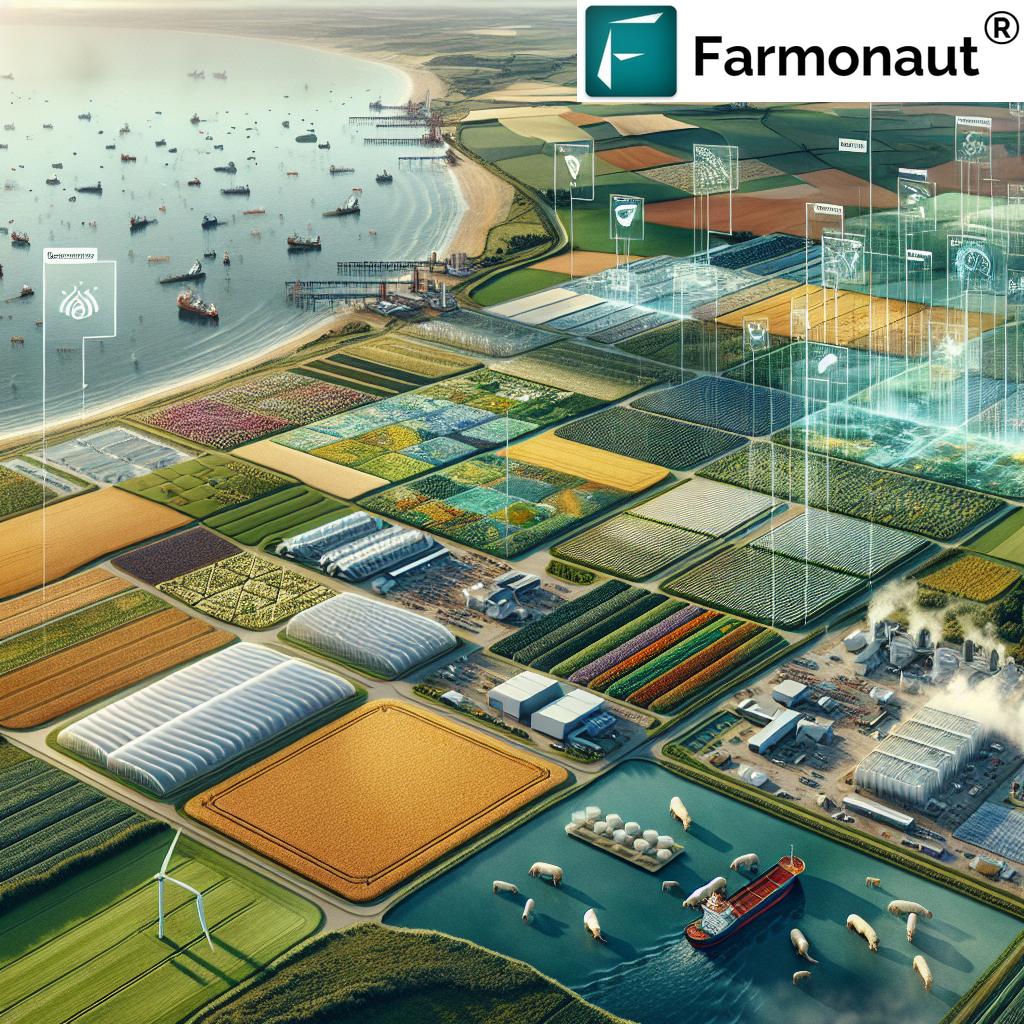
Despite the resilience shown by food businesses in coping with recent shocks, investment in this sector has not yet returned to pre-crisis levels. This raises concerns about the long-term vulnerabilities of our supply chains and their ability to withstand future disruptions.
To enhance supply chain resilience, businesses and policymakers must prioritize investment in technology and infrastructure. Farmonaut’s blockchain-based traceability solutions offer a promising avenue for improving supply chain transparency and efficiency. By implementing such technologies, the UK can build a more robust and adaptable food supply network capable of weathering future challenges.
Household Food Security: A Growing Concern
“UK household food security has decreased, with inflation identified as a key factor exacerbating the issue.”
One of the most pressing issues highlighted in the UK Food Security Report 2024 is the concerning decrease in household food security. While a majority of UK households remain food secure, the trend is moving in the wrong direction, with more families experiencing difficulties in accessing adequate nutrition.
- Decrease in overall household food security
- Rising inflation, particularly in food costs, exacerbating the issue
- Many households not adhering to government dietary guidelines
- Significant disparities in food insecurity based on demographics and income levels
The rising inflation, particularly in food and non-alcoholic beverage costs since 2021, has further aggravated the situation. This economic pressure has made it increasingly difficult for many households to maintain a healthy and balanced diet, with a significant portion of the population unable to adhere to government dietary guidelines.
Perhaps most concerning are the disparities in food insecurity experiences across different demographic and income groups. Lower-income households are disproportionately affected, highlighting the need for targeted interventions and support systems to ensure equitable access to nutritious food for all members of society.
Addressing household food security requires a multi-faceted approach, combining policy interventions, community support, and technological innovations. While Farmonaut’s primary focus is on agricultural technology, the insights provided by its satellite-based monitoring and AI systems can contribute to more efficient food production and distribution, potentially helping to alleviate some of the pressures on food prices and availability.
Consumer Confidence and Food Safety: A Mixed Picture
The report reveals a nuanced picture of consumer confidence and food safety in the UK. On the positive side, consumer confidence in the Food Standards Agency (FSA) and Food Standards Scotland (FSS) remains relatively high, indicating trust in the institutions responsible for ensuring food safety and quality.
- High consumer confidence in food safety regulatory bodies
- Emerging concerns over food prices since 2021
- Stable rates of foodborne diseases since 2019
- Upward trend in compliance with food hygiene regulations
- Backlog of businesses awaiting inspection remains a concern
However, since 2021, there has been a notable emergence of concerns over food prices, reflecting the broader economic challenges faced by households. This shift in consumer sentiment underscores the delicate balance between maintaining food safety standards and ensuring affordability for all.
In terms of food safety, the rates of foodborne diseases have remained relatively stable since 2019, excluding fluctuations observed during the COVID-19 pandemic years. This stability is encouraging and suggests that food safety measures have been largely effective in protecting public health.
Another positive trend is the upward trajectory in compliance with food hygiene regulations. This improvement reflects the ongoing efforts of businesses and regulatory bodies to maintain high standards of food safety across the supply chain. However, the report also highlights a concerning backlog of businesses awaiting inspection, which could potentially compromise the overall integrity of the food safety system if not addressed promptly.
Farmonaut’s blockchain-based traceability solutions can play a crucial role in enhancing food safety and consumer confidence. By providing transparent and immutable records of a product’s journey from farm to fork, these technologies can help identify and mitigate potential food safety risks more efficiently.
UK Food Security Trends Comparison (2023 vs 2024)
| Indicator | 2023 Value | 2024 Value | Change | Impact |
|---|---|---|---|---|
| Domestic Food Production (%) | 62 | 60 | ↓ | Negative |
| Import Reliance (%) | 38 | 40 | ↑ | Neutral |
| Supply Chain Disruptions (scale 1-10) | 6 | 7 | ↑ | Negative |
| Household Food Insecurity (%) | 10 | 12 | ↑ | Negative |
| Consumer Food Price Concerns (%) | 65 | 75 | ↑ | Negative |
This table provides a clear overview of the key trends in UK food security between 2023 and 2024. The data indicates several concerning developments, including a slight decrease in domestic food production, increased reliance on imports, and rising levels of household food insecurity. These trends underscore the need for concerted efforts to address the challenges facing the UK’s food system.
The Role of Technology in Addressing Food Security Challenges
As we navigate the complex landscape of food security in the UK, it’s clear that innovative solutions will play a crucial role in addressing the challenges we face. Advanced agricultural technologies, such as those offered by Farmonaut, have the potential to significantly impact various aspects of food production, supply chain management, and consumer confidence.
- Satellite-based crop health monitoring for optimized yields
- AI-driven advisory systems for informed decision-making
- Blockchain-based traceability for enhanced supply chain transparency
- Data-driven insights for more efficient resource management
Farmonaut’s satellite-based crop health monitoring system, for instance, can help farmers in the UK and beyond to optimize their yields by providing real-time data on vegetation health, soil moisture levels, and other critical metrics. This technology enables farmers to make informed decisions about irrigation, fertilizer usage, and pest management, ultimately leading to more efficient and sustainable food production.
The Jeevn AI Advisory System, another innovative tool offered by Farmonaut, delivers personalized farm advisory services based on real-time insights and weather forecasts. By leveraging artificial intelligence and machine learning, this system can help farmers adapt to changing climate conditions and optimize their crop management strategies, potentially mitigating some of the challenges posed by extreme weather events.
In addressing supply chain vulnerabilities, Farmonaut’s blockchain-based traceability solutions offer a promising avenue for enhancing transparency and efficiency. By providing an immutable record of a product’s journey from farm to consumer, this technology can help build trust, reduce fraud, and improve overall supply chain resilience.
To explore how Farmonaut’s innovative solutions can benefit your agricultural operations, consider trying out their services:
The Path Forward: Ensuring UK Food Security
As we look to the future, it’s clear that ensuring food security in the UK will require a multifaceted approach that addresses the challenges highlighted in the UK Food Security Report 2024. This approach must combine policy interventions, technological innovations, and collaborative efforts across the entire food system.
- Invest in sustainable farming practices to boost domestic production
- Strengthen international trade relationships to secure stable imports
- Implement advanced technologies to enhance supply chain resilience
- Develop targeted interventions to address household food insecurity
- Maintain high food safety standards while improving affordability
To boost domestic production and reduce reliance on imports, the UK must invest in sustainable farming practices and support farmers in adopting new technologies. This could include incentivizing the use of precision agriculture tools like those offered by Farmonaut, which can help optimize resource use and improve crop yields.
Strengthening international trade relationships will remain crucial for securing stable imports, particularly for products that cannot be produced domestically in sufficient quantities. However, this must be balanced with efforts to enhance domestic production capabilities and reduce vulnerability to external shocks.
Implementing advanced technologies throughout the supply chain can significantly enhance resilience and efficiency. From blockchain-based traceability systems to AI-driven logistics optimization, these innovations can help mitigate disruptions and ensure a more stable food supply.
Addressing household food insecurity will require targeted interventions that go beyond simply increasing food production. This may include policy measures to address income inequality, improve access to nutritious food in underserved areas, and provide education on healthy eating habits.
Finally, maintaining high food safety standards while improving affordability will be a critical balancing act. This may involve streamlining regulatory processes, investing in more efficient inspection systems, and leveraging technology to enhance food safety monitoring without driving up costs.
Conclusion: A Call to Action for a Food-Secure Future
The UK Food Security Report 2024 serves as both a warning and a call to action. While it highlights significant challenges facing our food system, it also points to opportunities for innovation and improvement. By leveraging advanced technologies, implementing sustainable practices, and fostering collaboration across sectors, we can work towards a more resilient and secure food future for the UK.
As we navigate these challenges, the role of innovative agricultural technologies like those offered by Farmonaut will be increasingly crucial. By providing farmers, policymakers, and businesses with the tools and insights needed to make informed decisions, we can build a more sustainable and secure food system for generations to come.
For those interested in exploring how Farmonaut’s solutions can contribute to enhancing food security and agricultural productivity, please visit their API or check out their API Developer Docs for more information.
FAQ Section
Q1: What are the main challenges to UK food security highlighted in the 2024 report?
A1: The main challenges include climate change impacts on domestic production, increased reliance on imports, supply chain disruptions, rising household food insecurity, and maintaining food safety standards while ensuring affordability.
Q2: How can technology help address food security issues?
A2: Technology can help through satellite-based crop monitoring, AI-driven farm advisory systems, blockchain-based supply chain traceability, and data-driven resource management, all of which can optimize production, improve efficiency, and enhance transparency.
Q3: What role does domestic production play in UK food security?
A3: Domestic production is crucial for UK food security, but faces challenges from extreme weather events and resource degradation. Enhancing domestic production capabilities is essential to reduce reliance on imports and improve overall food security.
Q4: How has the COVID-19 pandemic affected UK food security?
A4: The pandemic has exposed vulnerabilities in supply chains, exacerbated labor shortages, and impacted household food security due to economic pressures. It has also highlighted the need for more resilient and flexible food systems.
Q5: What can consumers do to support UK food security?
A5: Consumers can support UK food security by choosing locally produced foods when possible, reducing food waste, and staying informed about sustainable food choices. Additionally, supporting policies that promote food security and sustainable agriculture can make a significant impact.
Earn With Farmonaut: Affiliate Program
Earn 20% recurring commission with Farmonaut’s affiliate program by sharing your promo code and helping farmers save 10%. Onboard 10 Elite farmers monthly to earn a minimum of $148,000 annually—start now and grow your income!










